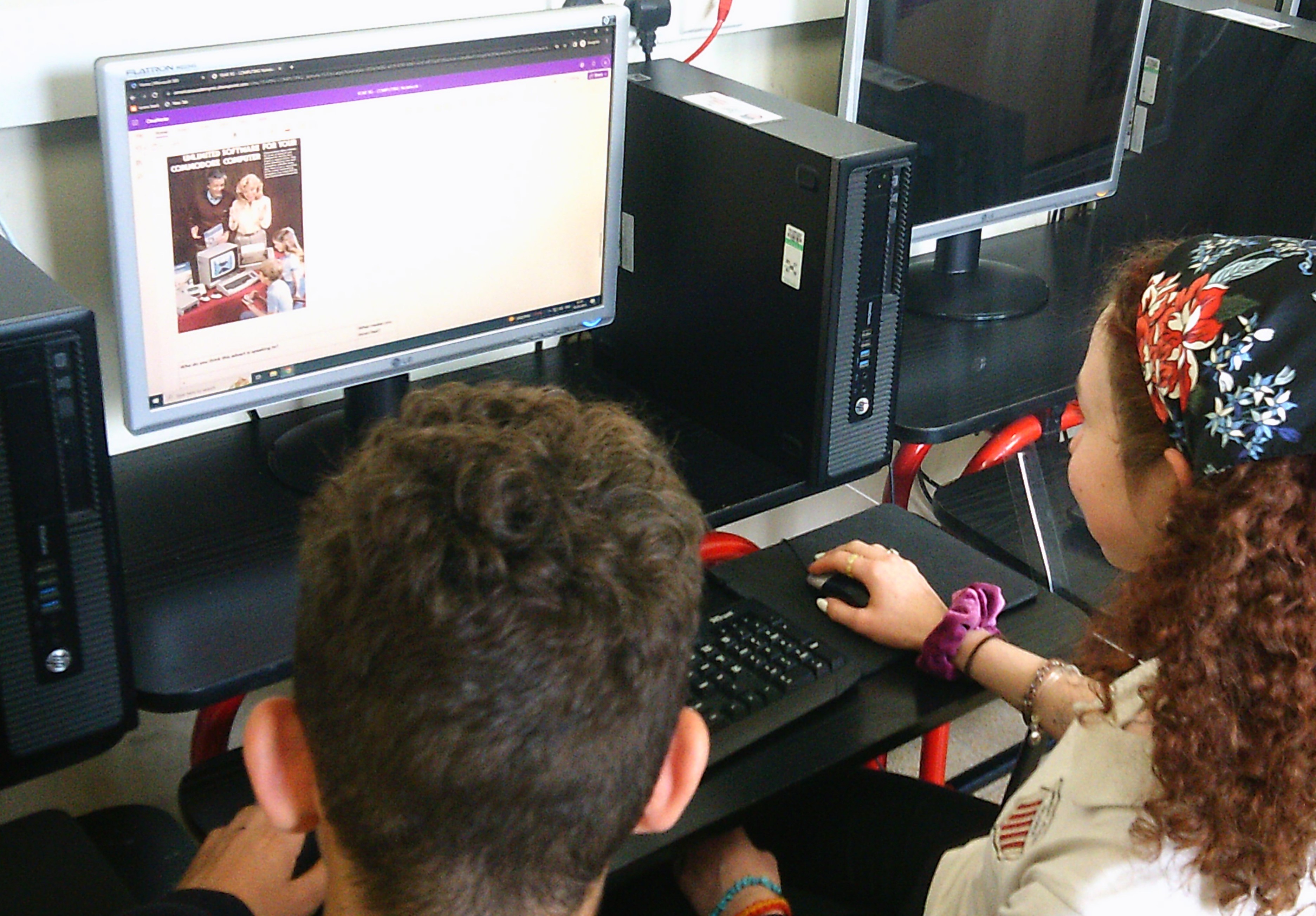FemSTEAM Mysteries: A Role-Model Game-Based Approach to Gender Equality in STEAM

Topic(s) addressed
By using pioneer role models and game-based learning we effectively demonstrated that STEAM careers are as accessible, meaningful, legitimate, and rewarding for girls as they are for boys, and to cultivate their aspirations for such fields.
Target group(s)
Our project involved boys and girls 12-15 years old as well as STEAM teachers, teaching educators and researchers.
Methodologies
The five cross-curricular STEAM scenarios featured a collaborative approach and inquiry-based learning. It combined multiple STEAM subjects, and was designed to be accessible, nuanced, and meaningful to all students. Non-formal, interactive and game-based learning built practical problem-solving skills in a virtual environment, while more formal tasks encouraged critical thinking. The role models were presented to promote empathy while challenging career stereotypes.
Innovation environment
The school invested significantly in the project, with teacher training, a whole-school presentation and access to facilities as needed. Departments supported each other: art’s graphic design lessons led to computing’s advertising poster, English added depth to project scenarios through creative writing, and so on. Game-based learning in the virtual environment of the FemSTEAM Mysteries game ran comfortably on older hardware without needing VR headsets. Many tasks were submitted digitally to minimise paper use, and the school building was used as the subject of the mapping task.
Teachers’ role
The project owes much of its success to its experienced professionals and their excellent digital literacy skills, cultural awareness, creativity, empathy, and subject knowledge. Teachers were given the freedom to apply a novel approach that takes the focus off facts and tasks emphasising the life and example of a carefully selected role model and inviting students to draw their own personal conclusions and life lessons.
Impact and output
The project was promoted and discussed by the whole school, and educators in Cyprus and abroad have pledged to deliver our scenarios in communities with ingrained attitudes on gender and careers. A quasi-experimental study, conducted in collaboration with EUC, showed a significant increase in female participants’ confidence in their STEM abilities. Several female students expressed they could follow their STEAM interests, just like the role models had.
Video
- Reference
- 2020-1-CY01-KA201-066058
- Project locations
- Cyprus
- Project category
- Secondary education
- Project year
- 2023
Stakeholders
Coordinators
European University Cyprus
- Address
- Cyprus
Participants
American Academy Nicosia
- Address
- Cyprus
Challedu
- Address
- Greece
La Salle-Buen Consejo
- Address
- Spain
Technische Hochschule Koln
- Address
- Germany
Doukas School
- Address
- Greece
